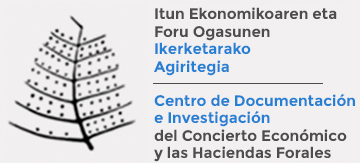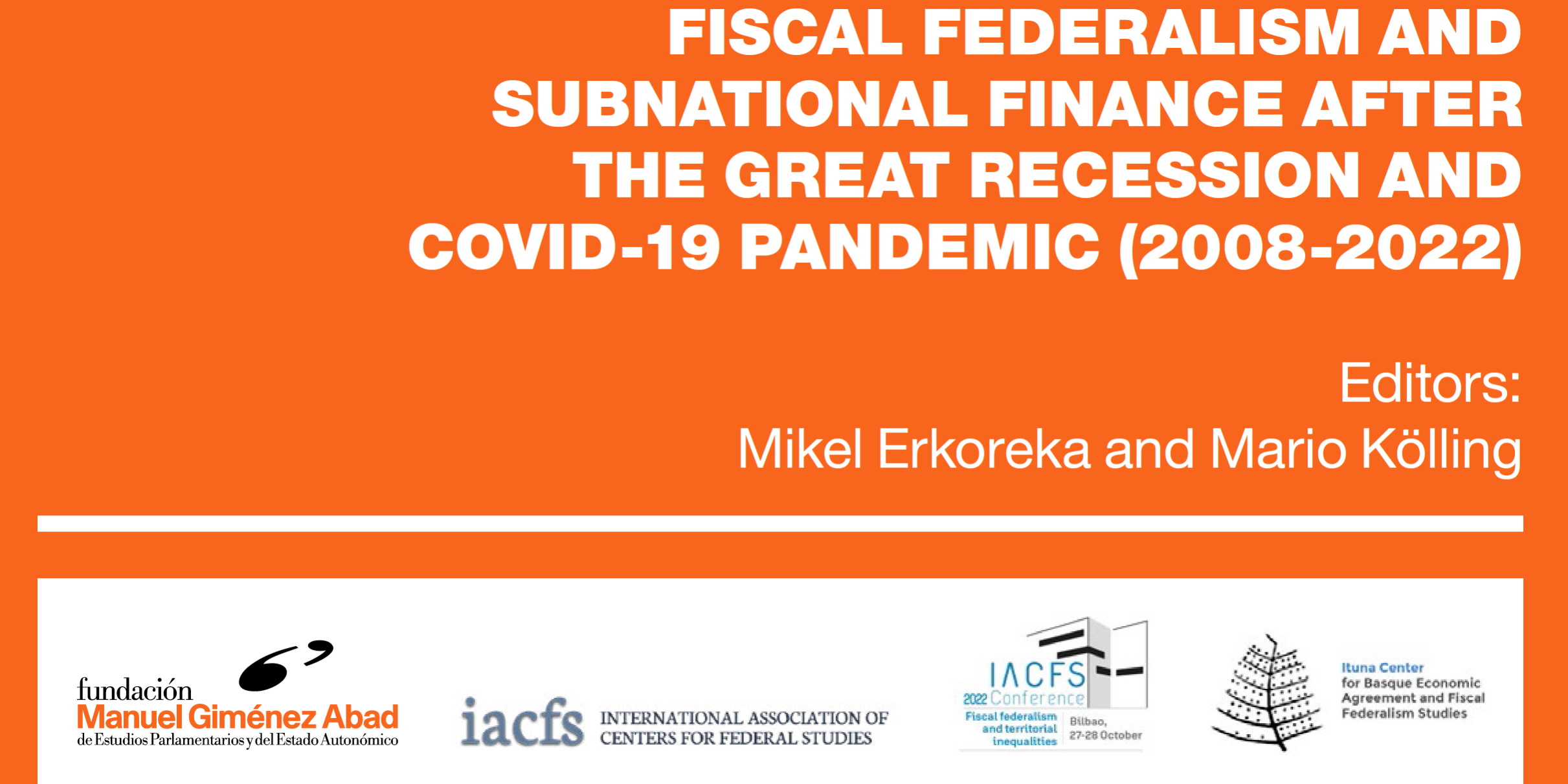Ituna Center, in collaboration with the Manuel Giménez Abad Foundation have published the special issue «Fiscal federalism and subnational finance after the Great recession and COVID-19 pandemic (2008-2022)«.
Some of the articles published in this special issue were presented at the Conference of the International Association of Centers for Federal Studies (IACFS) held in Bilbao on 27 and 28 October 2022. The conference was organised by the Ituna Center for Basque Economic Agreement and Fiscal Federalism Studies (UPV/EHU – University of the Basque Country). The IACFS (www.iacfs.org) is an interdisciplinary association of centers and institutes throughout the world with interests in independent research and publication about political, constitutional, legal, administrative, fiscal, economic, historical and philosophical issues relevant to political systems which have federal features. On behalf of the Ituna Center, we would like to take this opportunity to thank the speakers and participants of the IACFS Conference, as well as the Basque institutions for their support during the organisation (especially, the government of Bizkaia and the Basque government). In addition to the papers presented at the IACFS Conference, the special issue has been complemented by the articles received in response to the call for papers opened by the Ituna Center and Manuel Giménez Abad Foundation.
Two deep economic crises have had a major impact on public finances in the first two decades of the 21st century. On the one hand, the 2008 financial crisis exercised an intense pressure on public accounts and led to an increase in public debt across federations, with a specific impact on subnational governments. On the other hand, with the consequences of the 2008 crisis still present, the COVID-19 pandemic hit governments’ financial sustainability for the second time.
Once the initial impact of the COVID-19 crisis has been overcome, the recovery of long-term fiscal sustainability and public debt management will be one of the main challenges facing governments in the coming years. In the systems of fiscal federalism, the post-crisis management of public finances and debt also affects subnational governments. Subnational governments are usually responsible for providing public basic services and managing welfare policies, such as healthcare or education, a stronger focus on sound public finances will have a severe impact on their capacity to deliver these public policies. In general, the subnational level of government has received less attention from academia than the federal level. That is why this special issue puts the focus on the subnational finance.
The purpose of this special issue is to study how both crises affected multilevel governance systems and the institutional dynamics of federal and decentralised countries, focusing on the impact on subnational finance. The periods of crisis provide an ultimate testing ground for evaluating the resistance of the systems of governance and historically have played an important role in transforming the functioning and intergovernmental dynamics of federal countries.
The special issue has achieved a geographical balance, encompassing federal or decentralised countries over the five continents: Argentina, Australia, Brazil, Germany, India, Italy, Nigeria, Spain, Switzerland and United States. In this way, the special issue aims to facilitate research on trends within the framework of comparative federalism and allows to compare and contrast the evolution and behaviour of subnational finances and indebtedness between different federal realities. For example, the special issue evidences a trend towards re/centralisation in most of the studied cases.
We hope that this special issue will be of interest to you and that it will contribute advancing on fiscal federalism and subnational finances research.
Mikel Erkoreka
Ituna Center for Basque Economic Agreement and Fiscal Federalism Studies (UPV/EHU – University of the Basque Country)
Mario Kölling
UNED and Manuel Giménez Abad Foundation



